Supply Chain Sustainability
IntegrityNext is a cloud-based supply chain monitoring platform that enables you to gather, analyze and manage sustainability data from your suppliers easily and quickly.
The IntegrityNext platform gives you visibility into the sustainability of your supply chains based on supplier assessments, critical news monitoring, and 45 ESG country and industry risk indicators. This enables you to take effective action to reduce risks and improve sustainability performance over the long term.

Comprehensive ESG
Topic Coverage
The IntegrityNext platform covers 37 environmental, social and governance topics for you to chose from, enabling a comprehensive analysis of your supplier base, tailored to your industry, risk areas and objectives.
Environmental

protection
protection
Companies bear great responsibility for the protection of the environment and the responsible consumption of natural resources. Manufacturing industries are particularly reliant on the procurement of raw materials and processed products. By implementing comprehensive management structures, processes and measures, suppliers can significantly mitigate adverse environmental impacts resulting from pollution, the use of substances of concern and hazardous waste.

footprint
footprint
In many industries upstream and downstream value chains account for the lion’s share of greenhouse gas emissions. Suppliers in particular often play a critical role in mitigating their customers’ overall carbon footprint. They should therefore engage in comprehensive emissions accounting across all scopes, set meaningful and methodologically sound reduction targets and report on their progress.

Targets
Targets
Numerous studies have picked holes in corporate greenhouse gas emission reduction targets, be it for methodological reasons or their lack of ambition. The Science-Based Targets initiative (SBTi) allows companies to set scientifically sound and externally approved targets in line with the commitments of the Paris Agreement. SBTi-aligned engagement targets can ensure effective climate action along the supply chain.

management
management
The energy consumption of a company has implications for climate action, nature protection, resource use and financial costs. A systematic management system like ISO 50001 allows companies to effect positive change in all these areas. On the part of suppliers this also requires the structural and procedural implementation of internal policies, trainings, targets, action programmes and monitoring systems.

In many countries ships are dismantled without regard for environmental or occupational safety concerns. This often results in pollution and serious health risks for workers and/or communities. Based on the European Ship Recycling Regulation (EU) 1257/2013 shipyards and ship owners have to screen their suppliers on hazardous substances (material declarations) and obtain Supplier Declarations of Conformity (SDoC).

Chemicals have become essential building blocks of many consumer and industrial products and are thus virtually ubiquitous. It is imperative that materials which can cause harm to the environment and human health be identified and eliminated to the greatest extent possible. Suppliers must therefore be screened on critical substances contained in their articles, chemicals and mixtures in line with the European REACH Regulation.

The manufacturing of electrical and electronic equipment often resorts to hazardous substances that can be toxic or persistent in the environment once they reach certain concentrations. The European RoHS 2 Directive imposes restrictions on the use of ten substances to mitigate potential harm to the environment and human health. Companies therefore have to make sure their suppliers comply with the permitted thresholds.

The United States Toxic Substances Control Act (TSCA) restricts or prohibits the manufacturing, use and distribution of five persistent, bioaccumulative and toxic chemicals (PBT5 chemicals), among many others. This also applies to products containing these substances. Companies have to carry out comprehensive due diligence checks along their supply chains if they produce relevant goods in the United States or intend to import them into the country.
Governance

& bribery
& bribery
Corruption and bribery constitute major risks for companies, be it due to financial penalties, reputational damage or a decline in competitiveness. Comprehensive management structures and processes are needed to address these risks and comply with stringent regulatory requirements. Companies also bear responsibility for the business practices of their suppliers and should therefore implement relevant preventive and remedial measures.

(GDPR)
(GDPR)
In times of rapidly accelerating digitalisation the storage, processing and transmission of personal data has become a mainstay of many business models. Adequate management systems and processes must therefore ensure compliance with regulatory standards and provisions such as the European General Data Protection Regulation (GDPR). In the light of frequently close ties with suppliers, companies should examine their use and processing of personal data.

The mounting digitalisation and interconnectedness of society and business processes continually provides criminals with new targets. Cyber attacks have thus become a major threat to many corporations. In this wake, supply chain entities are also increasingly used as gateways for attacks on downstream companies. Comprehensive management systems such as ISO 27001 and holistic security concepts are therefore vital for critical suppliers.

Nowadays companies have to live up to the expectations of a whole range of stakeholders. This includes requirements by regulators, customer needs and the beliefs of civil society groups in equal measure. Codes of conduct are a key vehicle for embedding fundamental principles and values in corporate cultures. Many companies extend the application of their codes of conduct to business partners and suppliers to further mitigate risks.

check
check
Countries impose sanctions for a host of reasons. Business relations with listed individuals are liable to prosecution and represent a major risk. Companies should systematically check their suppliers’ executive board members and beneficial owners against official sanctions lists.
ESG Risk Management
Our industry proven process supports you step by step with the establishment of a continuous, effective risk management to identify and successfully manage ESG risks along the supply chain.
Country & Industry Risks Analysis
Purchasing organizations have many thousands, often tens of thousands of suppliers. Depending on their industry and location they can bear high risk. With IntegrityNext, you can easily identify critical suppliers with high risk to people and the planet and focus your activities on what matters most.
- 45+ ESG Country &
Industry KPIs - From most trusted sources
- Statistic values from more than
1 million suppliers - Trusted by industry leading
companies

Supplier Assessments & Certificates
For high risk suppliers you should conduct ESG assessments that align with regulatory due diligence requirements. IntegrityNext provides customers with over 25 pre-built assessments that cover all important requirements from international standards and legislation. Thanks to the largely automated process, you can easily guide thousands of suppliers through the assessment process without wasting time and effort.
- Obtain supplier
self-assessments and
certificates - With pre-built supplier
questionnaires - Adhering to international
standards - Available in 13 languages

Quality & Certificate Validation
Our team of ESG experts review the incoming answers and documents of evidence from your suppliers. They create a findings report, send correction requests to your suppliers and review the progress. This ensures optimal results and data quality.
- Robust due diligence through
conscientious review of responses - Maximum response rate
and quality of responses - Review of certificates and
evidence documents - Addressing improvement actions

Critical News Monitoring
The IntegrityNext Critical News Monitoring gets to work as soon as you upload your suppliers onto the platform, giving you instant access to critical supplier news for the last 12 months. AI scans around one billion media messages a day, links them to your suppliers and issues risk alerts in case of potential threats. You’ll be the first to know.
- Round 1 billion news and
messages scanned per day - Background information from
news magazines, international
authorities, NGOs, experts
and employees - Early warnings on malpractice
and reputational threats - 100% of your suppliers and
100% of your topics of interest

Corrective
Action Plan
Suppliers with a poor ESG assessment pose an increased risk to your supply chain and your business. IntegrityNext not only provides you with a tool to derive and track such measures, but also shows your suppliers where there is potential for improvement through standard measures.
- Identify where to take action
- Easily derive and track
measures and actions - Standard actions for many
ESG risk situations and laws - Management of supplier
improvement measures

GRI-certified Sustainability Report
According to the Corporate Sustainability Reporting Directive (CSRD) and the Supply Chain Act, companies will also have to disclose their due diligence process, the risks in their supply chain as well as the measures taken and their effectiveness. With IntegrityNext, you can not only document this information, but also generate a report at the click of a button, supporting comprehensive sustainability reporting according to the GRI Standards.
- Get a pre-built CSR-Report
certified by the GRI - As a customizable
MS PowerPoint slide deck - With all major supply
chain KPIs from the GRI - Supports sustainability reporting

Procurement
System Integration
With IntegrityNext you can automatically collect sustainability and compliance information on all your suppliers. Enrich the supplier profiles in your purchasing systems, no matter if it is your ERP, catalogue, eSourcing, BI, performance or risk management. With APIs you can integrate your systems and the data will automatically flow to where it is needed.
- Integrate sustainability and
compliance checks in your
supplier pre-qualification process - Approve or block
suppliers in your ERP - Enhance your supplier
risk profiles - Flag preferred suppliers in
your catalogue system
-

Integration Partner SAP Ariba
There are 4 possible areas to display IntegrityNext data in SAP Ariba: SAP Ariba SLP, SAP Ariba Sourcing, SAP Ariba Supplier Risk, SAP Ariba Supplier Risk Engagement Survey. Through the integration it is possible to provide procurement teams with streamlined access to supplier sustainability and compliance data. To simplify the integration process, IntegrityNext offers a standard connector. -

Integration Partner SAP
IntegrityNext data can be integrated into SAP via a 3rd party connector. The sustainability and compliance information will be visible in the supplier master record to be used in further business processes. -
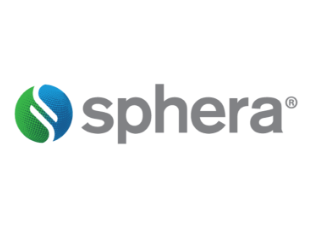
Integration Partner sphera
The CSR & Compliance Scorecard section within sphera can be enhanced with IntegrityNext data. The IntegrityNext Scorecard is visible in the sphera Risk Radar, where follow-up actions can directly be created. -
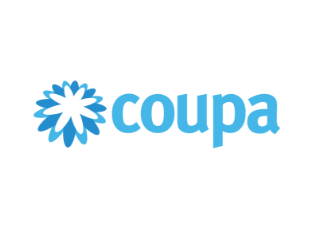
Integration Partner Coupa
The IntegrityNext connector is available in the Coupa App store. Through the integration of sustainability and compliance data from IntegrtiyNext in the supplier masterdata at Coupa, users have the opportunity to consider ESG data in further business decisions. -
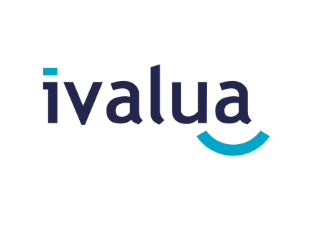
Integration Partner Ivalua
By implementing IntegrityNext data in the the risk center within the Ivalua supplier masterdata, users can enhance their risk management with sustainability and compliance data. -
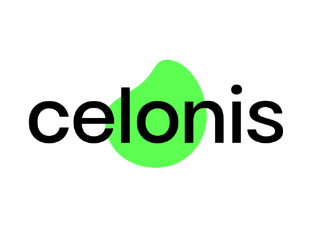
Integration Partner Celonis
The integration of ESG data and social media monitoring results in the Celonis EMS software, allows buyers to consider sustainability, compliance and reputational risks in their sourcing decisions. -
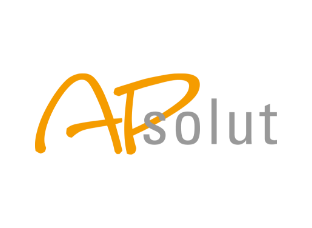
Integration Partner Ap-solut
Ap-solut enables data integration between IntegrityNext and SAP ECC/S4HANA through their connector “Fluid”. -
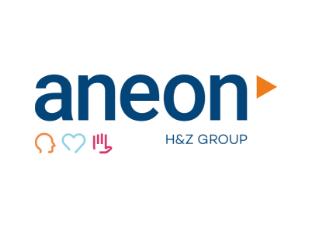
Integration Partner Aneon
Aneon manages the data transfer between IntegrityNext and the Jaggaer procurement solution to ensure the seamless execution of the defined business processes. -
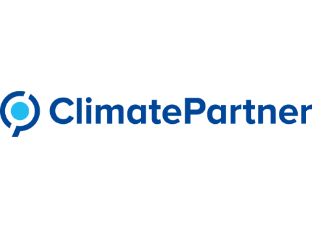
Integration Partner ClimatePartner
ClimatePartner expands the IntegrityNext portfolio by offering the calculation of the corporate carbon footprint and the product carbon footprint, and subsequently supporting their reduction and compensation.
Transforming requirements into processes
Legislation and international organisations define a tightening legal framework in which companies must operate today. IntegrityNext helps companies to transfer complex and dynamic regulations, standards and norms into their corporate structures.
German Supply
Chain Due Diligence
Act (LkSG)
On June 11, 2021, the German Parliament passed the Supply Chain Due Diligence Act. For the first time, it creates a legal framework for due diligence and reporting obligations along the supply chain.
It requires the affected companies to implement a risk management system to check all direct suppliers for compliance with human rights standards, take preventive and corrective measures and publish an annual report.
Swiss ODDT
On January 1, 2022, the Ordinance on Due Diligence and Transparency in the Sectors of Minerals and Metals from Conflict Areas and Child Labour (ODDT) came into force in Switzerland. It requires Swiss companies to fulfil due diligence obligations regarding conflict minerals and metals and/or child labour in their supply chain and to report annually on the fulfilment of the due diligence obligations.
CSRD
The Corporate Sustainability Reporting Directive (CSRD) is the EU Commission’s proposal to strengthen the nature and extent of sustainability reporting in the EU over the next years.
The CSRD proposal significantly enhances the scope of the existing Non-Financial Reporting Directive and will affect approximately 50.000 companies in the EU. Furthermore, it introduces more detailed reporting requirements, and the requirement to report according to mandatory EU sustainability reporting standards.
Norwegian Transparency Act
The Norwegian Transparency Act came into force on July 1, 2022. Affected companies must carry out due diligence to identify actual or potential negative impact on human rights and working conditions in the supply chain and take measures accordingly.
The method and findings of the due diligence must be published in an annual statement.
Science-Based Targets
Science-based targets provide companies with a clearly-defined path to reduce greenhouse gas (GHG) emissions in line with the Paris Agreement goals. Targets are considered ‘science-based’ if they are in line with what the latest climate science deems necessary to meet the goals of the Paris Agreement – limiting global warming to well-below 2°C above pre-industrial levels and pursuing efforts to limit warming to 1.5°C.
ILO Labour Standards
Since 1919, the International Labour Organization has developed and maintained a system of international labour standards aimed at promoting opportunities for women and men to obtain decent and productive work, in conditions of freedom, equity, security and dignity. They are an essential component in the international framework for ensuring that the growth of the global economy provides benefits for all.
Paris Agreement
The Paris Agreement is a legally binding international treaty on climate change that came into force on November 4, 2016. Its goal is to limit global warming to well below 2°C, preferably to 1.5°C, compared to pre-industrial levels.
European Green Deal
The European Green Deal was approved in 2020 and encompasses a set of policy initiatives by the European Commission with the aim to reduce GHG emissions by 55% until 2023 and make the European Union climate neutral by 2050. The set of measures (“Fit for 55”) includes the revision and extension of existing EU regulations as well as the addition of new regulations and setting up of funds.
Basel Convention
The Basel Convention on the Control of Transboundary Movements of Hazardous Wastes and their Disposal is a multilateral environmental agreement that aims to protect human health and the environment against the adverse effects of hazardous wastes. It requires its Parties to ensure that such wastes are managed and disposed of in an environmentally sound manner.
POPs Regulation
The POPs Regulation aims to protect human health and the environment with control measures that prohibit or severely restrict the production and use of persistent organic pollutants (POPs) and ensure the environmentally sound disposal of waste consisting of, or contaminated by POPs in the European Union.
Minamata Convention
The Minamata Convention on Mercury is a global treaty to protect human health and the environment from the adverse effects of mercury. It sets out a range of measures to control the supply and trade of mercury, including setting limitations on specific sources of mercury such as primary mining, and to control mercury-added products and manufacturing processes in which mercury or mercury compounds are used, as well as artisanal and small scale gold mining.
Kyoto Protocol
The Kyoto Protocol is an international agreement linked to the United Nations Framework Convention on Climate Change, which commits its Parties by setting internationally binding emission reduction targets.
OECD Guidelines
The OECD Guidelines set standards for responsible business conduct across a range of issues such as human rights, labour rights, the environment, information disclosure, and combating bribery. In May 2011, OECD members and adhering governments updated the Guidelines and introduced substantial new provisions in areas such as human rights, due diligence and supply chain responsibility.
UN Guiding Principles
The UN Guiding Principles on Business and Human Rights are a set of guidelines for states and companies to prevent, address and remedy human rights abuses committed in business operations. They form the basis for the National Action Plans for Business and Human Rights (NAPs) as adopted by several countries and are an important basis for the implementation of human rights due diligence in companies.
EU-Guideline 2014/95/EU
Directive 2014/95/EU shall enhance the consistency and comparability of non-financial information relating to environmental matters, social and employee-related matters, respect for human rights, anti-corruption and bribery matters. This also includes supply and subcontracting chains.
GHG Protocol Standards
GHG Protocol establishes comprehensive global standardized frameworks to measure and manage greenhouse gas emissions from private and public sector operations, value chains and mitigation actions. The GHG Protocol Standards provide requirements and guidance for companies and other organizations that want to assess the emissions impact of their operations, products and value chain.
FCPA
The Foreign Corrupt Practices Act (FCPA), enacted in 1977, generally prohibits the payment of bribes to foreign officials to assist in obtaining or retaining business. The FCPA can apply to prohibited conduct anywhere in the world and extends to publicly traded companies and their officers, directors, employees, stockholders, and agents. Agents can include third party agents, consultants, distributors, joint-venture partners, and others.
UK Bribery Act
The UK Bribery Act contains provisions on offences involving bribery and related matters. It allows for the punishment of persons or companies connected to the UK, regardless of where the offence was committed.
Environmental Protection Agency (EPA)
In partnership with state governments, tribal governments and other federal agencies, The United States Environmental Protection Agency (EPA) works to assure compliance with the nation's environmental laws to help protect public health and the environment.
OFAC
The Office of Foreign Assets Control (OFAC) (USA) administers and enforces economic and trade sanctions based on US foreign policy and national security goals against targeted foreign countries and regimes, terrorists, international narcotics traffickers, those engaged in activities related to the proliferation of weapons of mass destruction, and other threats to the national security, foreign policy or economy of the United States.
OSHA
With the Occupational Safety and Health Act of 1970 (USA), the Occupational Safety and Health Administration (OSHA) has been created to assure safe and healthful working conditions for working men and women by setting and enforcing standards.
HASAWA
The Occupational Health and Safety Act 1974 (UK) is the primary instrument of legislation dealing with occupational health and safety. The Health and Safety Executive, together with local authorities (and other competent authorities), is responsible for implementing the Act and a number of other laws and statutory instruments relating to the working environment.
UK Modern Slavery Act
The UK Modern Slavery Act (2015) includes provisions on slavery, forced labour and human trafficking, as well as provisions to protect victims.
Dodd-Frank-Act Section 1502
(USA)
Section 1502 of the Dodd-Frank Act (USA) requires US listed companies to disclose the use of conflict minerals (tin, tantalum, tungsten, gold) from the Democratic Republic of Congo or neighbouring countries in their products. With this regulation, the US government intends to prevent the financing of armed groups in parts of the DR Congo through raw materials extraction and trade.
United States Customs
and Border Protection
(CBP)
U.S. Customs and Border Protection has direct responsibility for enhancing U.S. economic competitiveness. By reducing costs for industry and enforcing trade laws against counterfeit, unsafe, and fraudulently entered goods, CBP is working to enable legitimate trade, contribute to American economic prosperity, and protect against risks to public health and safety.
EU Conflict Minerals Regulation
On January 1, 2022 the EU Conflict Minerals Regulation came into force. It requires EU importers of tin, tantalum, tungsten and gold (“3TG”) to comply with, and report on, supply chain due diligence obligations if the minerals originate (even potentially) from conflict-affected and high-risk areas. The regulation is largely inspired by the US Dodd-Frank Act (2010).
EU Framework Decision on terrorism
Measures against offences of public provocation, recruitment and training for terrorism adopted in most EU countries. The decisions define terrorist offences as well as offences related to terrorist groups or offences related to terrorist activities and set out the rules for implementation in EU countries.
General Data
Protection Regulation
(GDPR)
The General Data Protection Regulation contains rules on the protection of individuals with regard to the processing of personal data and on the free movement of such data and protects the fundamental rights and freedoms of natural persons.
UK Environmental Protection Act
The United Kingdom's Environmental Protection Act 1990 defines regulations for the better control of pollution that is the result of industrial or other processes.
Various National Data Protection Legislation
Various National Data Protection Legislations, e.g. UK Data Protection Act, it controls how personal information is used by organizations, businesses or the government. Everyone responsible for using data has to follow strict rules called ‘data protection principles’.
SOX (Sarbanes-Oxley Act)
The Sarbanes-Oxley Act of 2002 (USA) is an act to protect investors by improving the accuracy and reliability of corporate disclosures made pursuant to the securities laws, and for other purposes.
ILO Conventions
International labor standards are legal instruments drawn up by the United Nations International Labor Organization's constituents (governments, employers and workers) and setting out basic principles and rights at work. They are either conventions, which are legally binding international treaties that may be ratified by member states, or recommendations, which serve as non-binding guidelines.
UK Counter Terrorism and Security Act 2015
The Counter-Terrorism and Security Act 2015 (UK) contains powers to help the UK respond to the threat of terrorism. The act will disrupt the ability of people to travel abroad to engage in terrorist activity and then return to the UK, enhance the ability of operational agencies to monitor and control the actions of those who pose a threat and combat the underlying ideology that feeds, supports and sanctions terrorism.
Financial Anti-Terrorism Act
"International Money Laundering Abatement and Anti-Terrorist Financing Act of 2001 (USA). Amends criminal law to include foreign corruption offenses as money laundering crimes. Establishes Federal jurisdiction over: foreign money launderers (including their assets held in the United States); and money that is laundered through a foreign bank (...)"
Social
labour rights
labour rights
In many countries internationally recognised human and labour rights standards like the ILO Conventions are not adequately enforced. Major problems relate to discrimination, child and forced labour, poor working conditions or non-compliance with the fundamental rights of local communities. Companies that operate globally must ensure that their suppliers adhere to these standards in order to avoid serious reputational and compliance risks.
and safety
and safety
In many countries statutory provisions for occupational health and safety are insufficient. In addition, the supply chains of certain industries are marked by high work-related risks and accident rates. Management systems like ISO 45001 can ensure the implementation of stringent safety standards. Alternatively, suppliers should set up corresponding structures and processes, including internal policies, trainings, action programmes and monitoring systems.
responsibility
responsibility
Many industries have complex supply chains and the most severe social and/or environmental impacts frequently occur at lower tiers. Suppliers should therefore call on their own sub-suppliers to also uphold high sustainability standards. Binding policies, supplier self-assessments, relevant procurement guidelines and corrective action plans can be key measures in that regard.
Many products contain tin, tantalum, tungsten and/or gold (3TG) which contribute to the financing of violence and human rights violations in certain conflict zones. Several jurisdictions have thus enacted comprehensive due diligence requirements along the respective supply chains. The CMRT reporting template of the Responsible Minerals Initiative (RMI) facilitates the collection of relevant data and provides insights into conflict-free smelters and refiners.
& mica
& mica
Many products contain cobalt and mica whose extraction has been linked to cases of child labour, insufficient safety standards and poor working conditions. Comprehensive due diligence is required to ensure the responsible procurement of these minerals. The EMRT reporting template of the Responsible Minerals Initiative (RMI) facilitates the collection of relevant data and provides critical insights into upstream supply chains.
modern slavery
modern slavery
Some countries are particularly prone to the various types of forced labour, despite the ratification of applicable ILO conventions. Companies that source raw materials, components or products from such regions should conduct comprehensive due diligence procedures for their supply chains to mitigate related risks. This includes, for example, demanding a declaration of commitment or the implementation of preventive and remedial measures.
Child labour is common in many countries and industries. The non-compliance with minimum age provisions and engagement in hazardous work are deemed particularly problematic. High-risk suppliers should therefore adhere to applicable laws and ILO conventions. Dedicated management systems can help to implement relevant measures such as age verification procedures.
wages
wages
The prevalence of overly low minimum wages in many countries often results in large-scale worker exploitation. Companies therefore bear great responsibility to ensure the payment of living wages along their supply chains so as to afford workers and their families a decent standard of living. Relevant measures comprise data collection, corresponding selection criteria for suppliers and the implementation of monitoring systems.
equity & inclusion
equity & inclusion
The promotion of equal opportunities, diversity and inclusion commonly has positive effects on corporate culture and development. In addition, numerous countries have enacted regulations on equality and non-discrimination. These basic principles should therefore be embedded in corporate decision-making and procurement processes and consider, for instance, the great variety of suppliers in selection procedures.